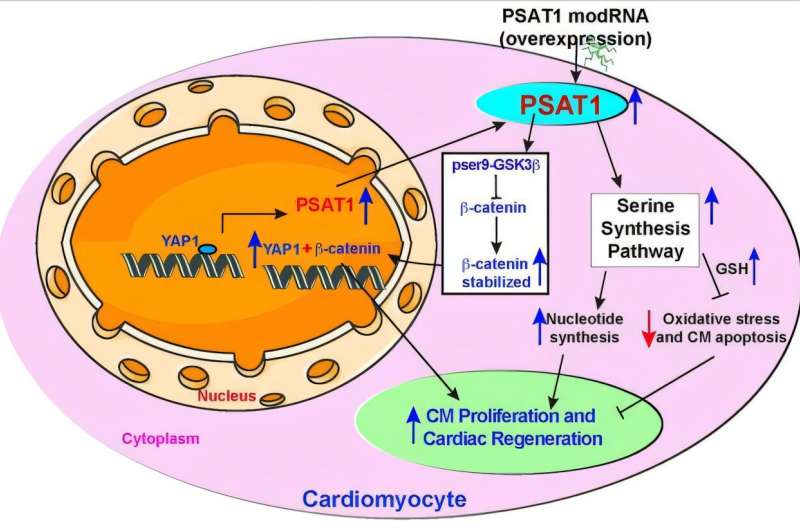Now, researchers at the Lewis Katz School of Medicine at Temple University have identified a new strategy that may help repair damaged heart tissue by reactivating an important developmental gene.
In a study published in Theranostics, a multidisciplinary team led by Raj Kishore, Ph.D., Laura H. Carnell Professor, Vera J. Goodfriend Chair in Cardiovascular Research, Chair of Cardiovascular Sciences, and a member of the Aging + Cardiovascular Discovery Center at Temple, describes how a gene known as PSAT1, delivered through synthetic modified messenger RNA (modRNA), can stimulate heart muscle repair and improve cardiac function following heart attack.
The study represents a major step forward in the effort to develop regenerative therapies for ischemic heart disease.

